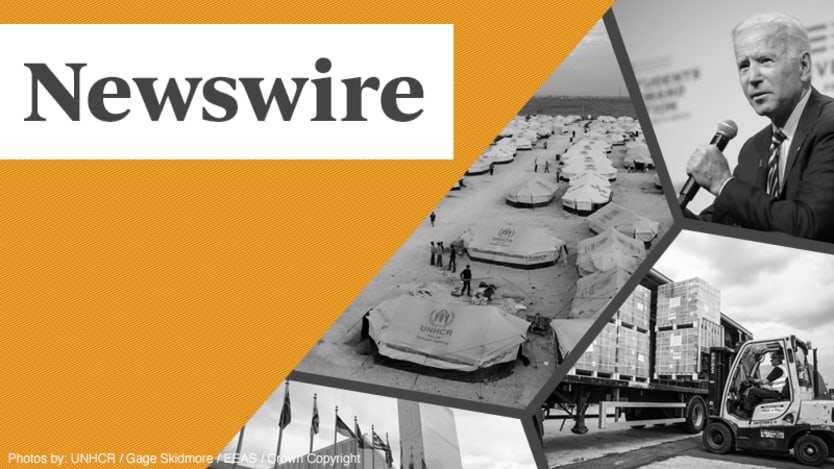
An explosive investigation into the World Bank’s Doing Business report has implicated some of the institution’s top leaders in manipulating data for geopolitical gain.
On Thursday, the law firm WilmerHale released its findings from an eight-month investigation into the World Bank’s Doing Business report. The bank responded by announcing that it is “doing away” with Doing Business.
Some of the most damning findings point to former World Bank President Jim Kim and current International Monetary Fund Managing Director Kristalina Georgieva’s efforts to intercede on behalf of politically influential countries by directing staff to alter the flagship global ranking to raise those countries’ scores, Shabtai Gold reports.
Those findings pertain to the Doing Business 2018 report, which was published in October 2017. The investigation found that both Kim and Georgieva pressured the Doing Business team into finding ways to raise China’s ranking on the index, which measures countries’ friendliness to the private sector. That was likely in a bid to secure China’s support for a high-stakes capital increase at the bank.
This is a preview of Newswire
Sign up to this newsletter for an inside look at the biggest stories in global development, in your inbox daily.
First, Kim’s aides sought methodological changes — including integrating Hong Kong into China’s score — to raise the country’s ranking. Then Georgieva took over, and ultimately approved score changes that “could be justified in light of differing expert opinions,” according to the report.
The weekend before the 2018 report went to press, Georgieva visited the home of a Doing Business manager to retrieve a physical copy — “presumably to make sure the changes to China’s data were sufficient,” according to the investigators.
In a statement to Devex, Georgieva disputed the findings.
“I disagree fundamentally with the findings and interpretations of the Investigation of Data Irregularities as it relates to my role in the World Bank’s Doing Business report of 2018,” she wrote, adding that she has had a briefing with IMF’s executive board on the matter.
The investigation also details irregularities and ethical breaches in the production of the 2020 report, and it points to a “toxic culture” and “fear of retaliation” on the Doing Business team under Simeon Djankov, one of the report’s founders, who left the bank last year — after labeling his critics “marxists.”
White House officials are reportedly reviewing these findings with concern.
Read: World Bank scraps Doing Business rankings due to data irregularities
Finding fault
“As we hold the global north and their leaders accountable, we must also hold our own African leadership accountable for their failures.”
— Dr. Ayoade Olatunbosun-Alakija, co-chair, African Union’s African Vaccine Delivery AllianceHigher-income countries have taken much of the blame for the staggering inequality in global vaccination rates due to their hoarding of COVID-19 vaccine doses. However, leaders in Africa — where less than 4% of the continent’s population has been vaccinated — should not be let off the hook either, says the chair of the AU’s vaccine alliance.
Some political leaders may have been “lulled into a false sense of complacency” by promises of international support, while others “have seen this pandemic as a way to enrich themselves,” Olatunbosun-Alakija says.
Read: COVID-19 vaccine alliance chair: African political leadership lacking
+ For more content like this, sign up for Devex CheckUp, the must-read weekly newsletter for exclusive global health news and insider insights.
Branching out
The board of the European Investment Bank endorsed a proposed new development branch for its work outside the EU this week. But my colleague Vince Chadwick has some questions, such as: What’s the difference between this and a separate subsidiary? How will EU delegations and other national DFIs be involved? How many staff will join the first hub in Nairobi? And how much will it cost? Vince has the answers for Devex Pro subscribers here.
Read: Q&A: The EIB’s new development branch [Pro]
Rapid response
Some rare good news on the outbreak containment front: After only one confirmed case, Guinea announced an end to its outbreak of Marburg virus disease, a hemorrhagic fever similar to Ebola that kills half the people it infects.
The lone case was a 40-year-old male farmer who died from the disease, which was confirmed in early August. Health officials are describing the response as “exemplary” and “a good demonstration of what can be done in preparedness, detection, and response.”
Read: Guinea declares an end to the Marburg outbreak after only one case
In other news
School attacks and student kidnappings in Nigeria could make at least 1 million children miss out on their education, according to UNICEF. [CNN]
The U.N. will not ask heads of state who will attend the General Assembly in person for proof of vaccination. [Reuters]
Cameroon will receive €632 million (about $740 million) in concessional loans from the World Bank. [Bloomberg]
Sign up to Newswire for an inside look at the biggest stories in global development.
Search for articles
Most Read
- 1
- 2
- 3
- 4
- 5








